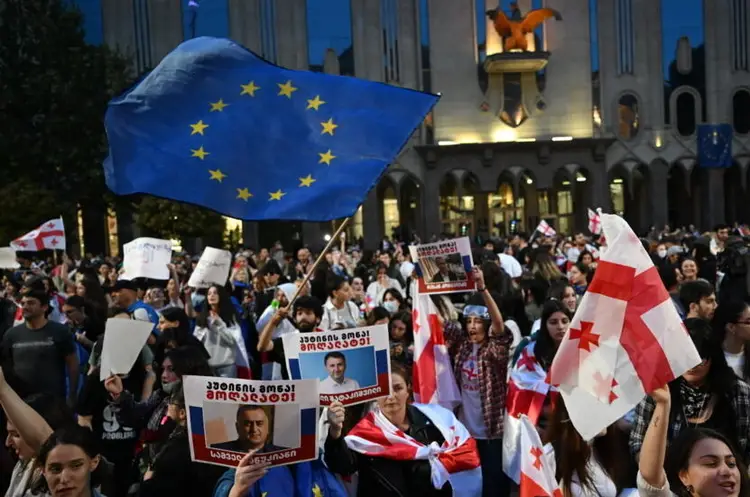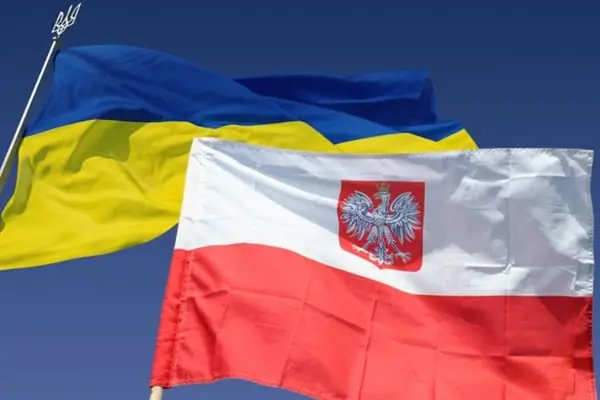Political Crisis in Sakartvelo (Georgia): Will the Country Shift from a Pro-European to a Pro-russian Course?

Does the Opposition Stand a Chance?
Sakartvelo’s political crisis has reached a peak ahead of the parliamentary elections scheduled for October 26. The current situation reflects the complex relations of the ruling party, Georgian Dream, with the international community, as well as a deep internal divide between supporters of the pro-Western course and those who advocate strengthening ties with russia. Amid political scandals and diplomatic conflicts accompanying the election preparations, the future of the country is becoming increasingly unpredictable.
How Have the Elections Intensified the Political Crisis?
An important signal of Sakartvelo’s growing international isolation came from the European Union Ambassador to Sakartvelo, Pawel Herczynski, who openly stated that under the current government, Sakartvelo would not become a member of the EU. He emphasized that after obtaining EU candidate status, the government had not shown sufficient commitment to democratic reforms and European values. Herczynski’s statement came amid growing discontent within the country and among Western partners regarding the government's actions targeting the opposition and altering the country's foreign policy direction.
Preparations for the elections are marked by escalating political conflict, both domestically and internationally. In Sakartvelo, tensions are rising between the ruling party and opposition forces, which have united to defend the Euro-Atlantic course. The Georgian Dream party, which has won elections three times since 2012, is now trying to retain power by restricting the activities of the opposition and civil society organizations. This includes recognizing several non-governmental organizations as "entities with electoral purposes," limiting their rights to participate in the electoral process. However, such decisions have sparked strong dissatisfaction within the country and have drawn criticism from the international community, which views these actions as incompatible with democratic standards.
Sakartvelo on the Geopolitical Stage
International reactions to the Sakartvelo government’s actions are becoming increasingly severe. The United States has already imposed sanctions on over 60 representatives of the ruling party, including security officials targeted under the "Magnitsky act". This indicates a significant deterioration in relations between Tbilisi and Washington, which have traditionally been close. The cancellation of Prime Minister Irakli Kobakhidze's invitation to a reception hosted by U.S. President Joe Biden during the UN General Assembly was another blow to the Sakartvelo government, reflecting Washington’s serious disappointment with the country’s political direction.
The refusal of the European Union to hold high-level meetings with Sakartvelo government representatives adds to the picture of international isolation faced by the ruling party. This situation arises from the Sakartvelo government's attempts to balance between Western and russian interests. While the majority of the country's population supports EU membership, the government demonstrates a multi-vector approach that includes strengthening cooperation with authoritarian countries in the region, such as russia, Azerbaijan, and Turkey. However, this strategy appears unjustified for a small country like Sakartvelo, which is heavily dependent on Western aid.
The Opposition’s Role in Bringing the Country Back to the Path of Euro-Integration
The opposition, in turn, is calling for a change of power and early reforms to bring the country back on the path of Euro-integration. In this context, President Salome Zourabichvili, who supports the pro-Western course and enjoys popularity among European leaders, has become an important player in domestic politics. She has rallied leading opposition forces around her, creating a "Georgian Charter" platform that envisions forming a technical government after the elections. The task of such a government would be to implement democratic reforms and restore relations with Western partners.
Zourabichvili’s initiatives have sparked outrage among the ruling party, which even attempted to impeach her, but these efforts proved unsuccessful. The President continues to pursue her own agenda, adding pressure on the government, which is forced to respond to her actions. Her visits to European capitals, including Berlin, Paris, and Brussels, underscore her influence in international circles and strengthen the opposition's positions within the country.
What Could Be the Consequences of the Elections?
Sociological polls indicate the possibility of a new parliamentary majority consisting of opposition forces. However, the question remains as to how far the ruling party will go to retain power. There are growing concerns about potential election fraud, restrictions on opposition media, and the use of state apparatus to pressure voters. The opposition warns that it is ready to defend the election results, but will it have the strength to resist the ruling establishment, which has security forces at its disposal?
In response to potential election process violations, Western partners have already warned of the consequences for Sakartvelo. In the event of election fraud, the European Union could suspend the visa-free regime with the country, freeze the Euro-Atlantic integration process, and halt financial assistance. Sanctions may target commercial banks and hinder money transfers, delivering a severe blow to an already crisis-hit economy. Some experts even suggest that Sakartvelo might have to immediately repay external debts, which would push the country’s budget to the brink of bankruptcy.
Georgian Dream's response to these threats includes intensifying anti-Western rhetoric and attempts to manipulate public opinion. For example, the ruling party uses images of war-torn Ukrainian cities in its political advertising to frighten voters into believing that if the opposition comes to power, the country could also plunge into war. Such rhetoric reflects the government’s readiness for radical measures to maintain control, even if it requires the use of repressive methods.
Possible Scenarios for the Future
The danger lies in the possibility that if the ruling party resorts to harsh measures to stay in power, it could lead to the escalation of internal conflict and deepen the political crisis. The use of security forces to suppress protests or arrest opposition leaders could trigger mass unrest and destabilize the country. In such a case, the political situation may evolve similarly to Belarus or Venezuela, where the government is sustained through repression and human rights violations.
Apart from internal threats, Sakartvelo faces risks of external aggression. Considering russia's historical ambitions in the Caucasus, political instability in the country could serve as a pretext for intervention from Moscow. With the country isolated from Western partners and weakened by internal strife, it may become an easy target for russia, which seeks to expand its influence in the region.
Thus, the parliamentary elections on October 26 are crucial for Sakartvelo's future. Their outcome will determine whether the country manages to return to the path of democracy and Euro-integration or continues down the road toward authoritarianism and distancing from Western values.










